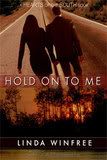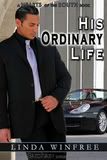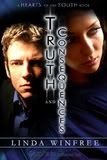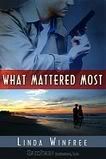Voice
That all-important, highly elusive, deeply personal element that can make the difference in your writing success.
 If you search for information on this subject on the web, you’ll quickly find that defining voice is highly a matter of opinion. Some believe voice is a reflection of sentence structure, word choice, tone. Others believe voice is more organic, that it emanates from an author’s soul, their life experiences, the way they see the world.
If you search for information on this subject on the web, you’ll quickly find that defining voice is highly a matter of opinion. Some believe voice is a reflection of sentence structure, word choice, tone. Others believe voice is more organic, that it emanates from an author’s soul, their life experiences, the way they see the world.
I believe voice comes from all of that and more. I believe voice is a culmination of who you are, where you’ve been and where you’re going. I believe voice is both ingrained and learned, organic and structured. I believe voice can be honed and changed and developed and still be true. I believe an author can have more than one voice.
A great example of this is Nora Roberts—writing as herself in romance and writing as J.D. Robb in her darker suspense series. Two very different voices, true to one very talented author.
In the last few months, I’ve come to relate writing voice to music voice.
(Click on the links below to hear a clip of the song in a new window)
In the country genre you wouldn’t mistake Carrie Underwood for say Martina McBride or Taylor Swift or Shania Twain. Yet, within the body of Carrie’s work, you’ve got a range of styles, from the Before He Cheats to Don't Forget to Remember Me.
I find myself equating this to the same author writing a gritty dark romance and a fluffy, comedic romance or a deeply spiritual romance. We’re still in the genre of romance, just as Carrie stays in the genre of country music, but with a twist to the voice, you’ve got a whole different feel.
There are many musical artists you can recognize from their singing voice or their melody alone. That’s their “voice”, their style…that’s what eventually becomes their signature. One such group that comes to mind is Rascall Flatts. Here are two examples: From Time To Time and Waiting All My Life.
Some authors I can relate this pattern to are Elizabeth Lowell, Tami Hoag and Roxanne St. Claire. Their voice and their work are consistent without being stagnant or repetitive.
What is your view on voice? What do you do to develop yours? What author voices do you love and why? Do you have any analogies that would allow us to view voice in a different light?
 If you search for information on this subject on the web, you’ll quickly find that defining voice is highly a matter of opinion. Some believe voice is a reflection of sentence structure, word choice, tone. Others believe voice is more organic, that it emanates from an author’s soul, their life experiences, the way they see the world.
If you search for information on this subject on the web, you’ll quickly find that defining voice is highly a matter of opinion. Some believe voice is a reflection of sentence structure, word choice, tone. Others believe voice is more organic, that it emanates from an author’s soul, their life experiences, the way they see the world.I believe voice comes from all of that and more. I believe voice is a culmination of who you are, where you’ve been and where you’re going. I believe voice is both ingrained and learned, organic and structured. I believe voice can be honed and changed and developed and still be true. I believe an author can have more than one voice.
A great example of this is Nora Roberts—writing as herself in romance and writing as J.D. Robb in her darker suspense series. Two very different voices, true to one very talented author.
In the last few months, I’ve come to relate writing voice to music voice.
(Click on the links below to hear a clip of the song in a new window)
In the country genre you wouldn’t mistake Carrie Underwood for say Martina McBride or Taylor Swift or Shania Twain. Yet, within the body of Carrie’s work, you’ve got a range of styles, from the Before He Cheats to Don't Forget to Remember Me.
I find myself equating this to the same author writing a gritty dark romance and a fluffy, comedic romance or a deeply spiritual romance. We’re still in the genre of romance, just as Carrie stays in the genre of country music, but with a twist to the voice, you’ve got a whole different feel.
There are many musical artists you can recognize from their singing voice or their melody alone. That’s their “voice”, their style…that’s what eventually becomes their signature. One such group that comes to mind is Rascall Flatts. Here are two examples: From Time To Time and Waiting All My Life.
Some authors I can relate this pattern to are Elizabeth Lowell, Tami Hoag and Roxanne St. Claire. Their voice and their work are consistent without being stagnant or repetitive.
What is your view on voice? What do you do to develop yours? What author voices do you love and why? Do you have any analogies that would allow us to view voice in a different light?
Labels: Joan's posts







7Comments:
I never got it when people talked about finding their voice. My voice is ME, so how could it not come out when I write?
Now I get it. Our voices are a part of us, but sometimes we don't trust our voice, we fool around with it, obscuring it or cutting it out of the ms. Or maybe we're writing in the wrong subgenre for our voices. Mine wouldn't fit into dark, angsty books. Or even cozy mysteries. Mine is better dealing with relationships.
Great blog, J, and one that's timely for me as we just discussed voice at my chapter blog on Monday.
(http://mwvrwa.blogspot.com/2007/02/voice.html for anyone who's interested.)
I think the only way you can develop your voice is to write. I don't think there's any way to "teach" voice. It's a culmination - like you said - of who you are and how you write and how you sound. The highest compliment I've been given was by a friend who read one of my manuscripts and said reading it was like talking to me. She could "hear" me telling the story.
I also think voice is subjective - what one person finds unique and "fresh" might irritate another. Case in point, I had an editor comment on my wondefully fresh voice, and another comment that it was "young and immature". Same book. Same voice. Different opinion.
Edie--It's true that as young writers, I think we try more to write our voices out then develop them. And we each definitely have stengths and weaknesses, voices better suited to certain types of writing.
E--Opinions-such is the pattern of the publishing industry.
Thanks, Liz. I agree that every person's voice is as unique as they are. I think the only time it gets diluted is when the author either tries to hard to cultivate it or tries to hard to emulate another author.
I agree that when we start writing, we don't tend to trust our voice. Especially if it's quite different to what is out there. But I think learning your craft, working on your books and trusting that inner instinct brings it all together.
Well said, Michelle!
What an interesting topic and I agree, Roxanne St. Claire has a very distinctive voice and she always entertains her readers.
Her Bullet Catcher series is a prime example.....her storyline is strong but she always adds additional characters to the mix to make her "voice" even stronger.
Nora Roberts, incredible. I once remember driving to our summer cabin with my husband and reading a few paragraphs to him and he simply said "wow"!
Post a Comment
<< Home